When you become a member of 4MHP, you become a part of a community that protects this extraordinary window into the past and gain access to exclusive privileges.
To be Denver’s premier destination for Western storytelling and educational experiences.
To educate a diverse community through experiences which promote preservation, interpretation and enjoyment of Denver’s Western heritage.
Four Mile Historic Park is a gateway to Denver’s Western heritage, offering a vibrant 12-acre oasis with a working farm and Denver’s oldest standing structure, the Four Mile House Museum. The museum houses an extensive collection of mid to late 1800s western artifacts, serving educational, historical, curatorial, and research purposes. Proudly acting as a custodian of cultural treasures, the museum evolves with contemporary approaches to artifact interaction, aspiring to be an immersive cultural attraction that goes beyond traditional museum settings. Visitors actively participate in a dynamic experience that brings history to life.
The Park is a hub of cultural and outdoor exploration, offering a diverse array of educational programs centered around Colorado history. Guided tours of the iconic Four Mile House, field trips, and outreach programs provide an immersive journey into the past, allowing visitors to connect with the heritage that has shaped Denver.
Four Mile Historic Park stands apart as a historic landmark and refuge from the hustle-bustle of modern life in the city. Take a break to stroll the grounds, have a picnic, and enjoy this stand-alone destination for historic preservation.
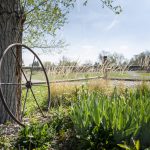
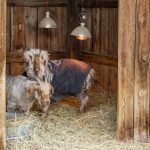
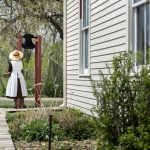

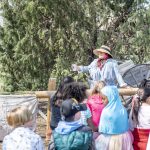
The Four Mile House is pleased to share the history of the site, which stretches much farther back than the house’s 160+ years.
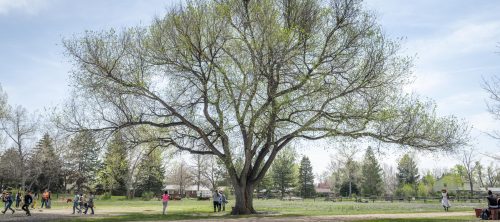
North America has been home to Indigenous peoples since time immemorial. Numerous different peoples have called this land home over thousands of years. The Arapaho (or Hinono’ei), Cheyenne (or Tsistsistas), and Ute (or Nuche) peoples are some of the most recent traditional residents of the land we now call Denver, Colorado.
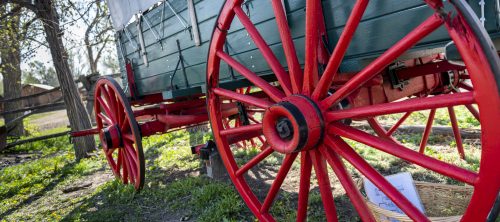
The Cherokee Trail route is established by a wagon train headed toward California, following an older trail created by Indigenous peoples.
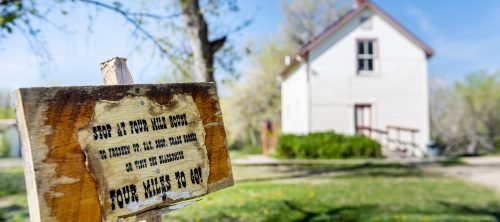
Brothers Samuel and Jonas Brantner build the two-story log cabin that would become the Four Mile House, offering services to travelers along the Cherokee Trail.
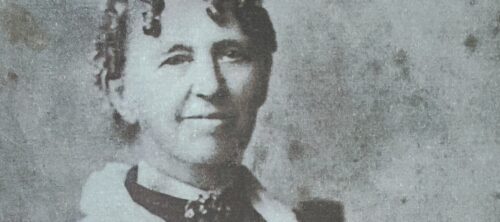
Businesswoman Mary Cawker purchases the Four Mile House from the Brantner Brothers and opens an inn for travelers along the Cherokee Trail. In the 1800s, it was rare for a single woman to own and operate her own business. As a trading post with hot meals served twice a day and dances on the second floor, it becomes a hub for local activity.
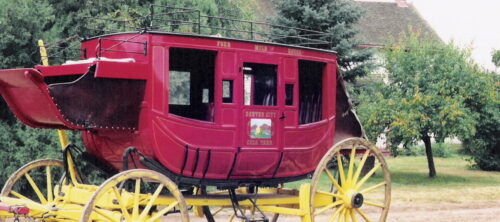
The Butterfield Stage Company begins scheduled service along Cherry Creek and Cawker’s house becomes the last “mile stop” along the route to Denver. There were originally six different mile houses along Cherry Creek! Only the Four Mile House and the Seventeen Mile House still stand. The Seventeen Mile House Farm Park is open to the public in Centennial, CO.
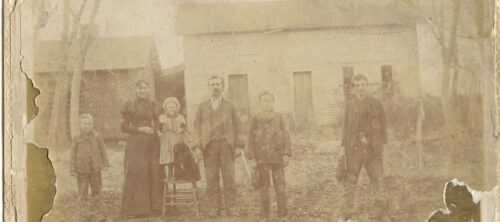
Four days of floods in May inundate farmland around Denver and leave the Four Mile House stranded – an island in the floodplains. When the floodwaters recede, Mary Cawker sells the house and surrounding 100+ acres to Millie and Levi Booth for $800.
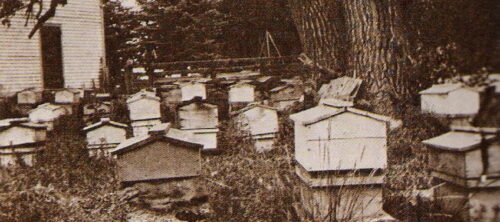
Levi Booth builds the Bee House as a dwelling for the family and farmhands. The house is later converted into the center of operations for Millie’s beekeeping enterprise. Today, the Bee House is used as a one-room prairie schoolhouse for children on field trips.
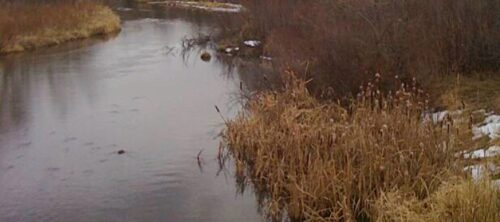
The Booths continue to operate a successful stagecoach stop and prosperous farm. Levi Booth creates an irrigation system by digging what he called the First Attempt Ditch from the Cherry Creek.
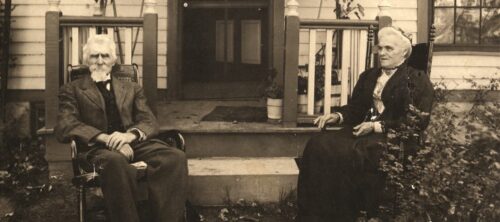
The completion of the first railroad between Denver and Cheyenne, Wyoming abruptly ends regular stagecoach service along the Cherry Creek route. The Booths are forced to pivot, and turn their efforts toward farming.
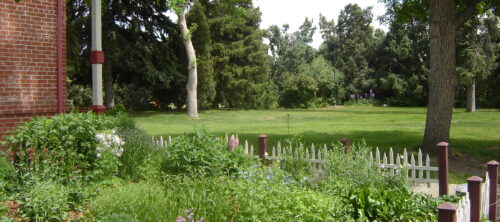
Levi Booth expands his irrigation system with the Success Ditch, which becomes the farm’s main water supply and provides enough irrigation to plant an apple orchard.
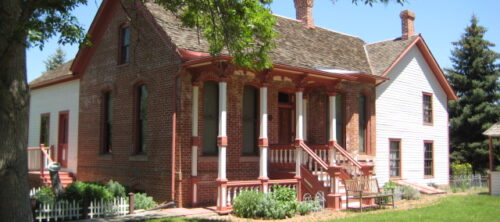
The Booths build a fashionable brick addition to the original clapboard-sided log cabin that had served as the core of their home. Over time, they acquired more than 600 acres.
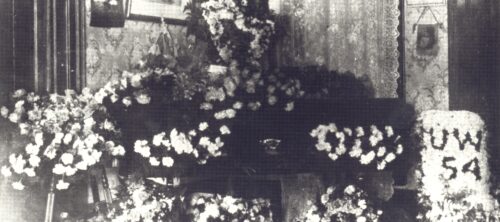
in 1912, Levi Booth (1829-1912) passes away at the Four Mile House. Millie Booth assumes ownership of the house. In 1926, Millie Booth (c. 1837-1926) passes away, leaving her considerable estate of 400 acres, water rights, and cultivated farmland to her daughter and son-in-law, Grace and Daniel Working.
Four Mile House and other significant structures on the site, including the Bee House, are recorded in the Historic American Buildings Survey.
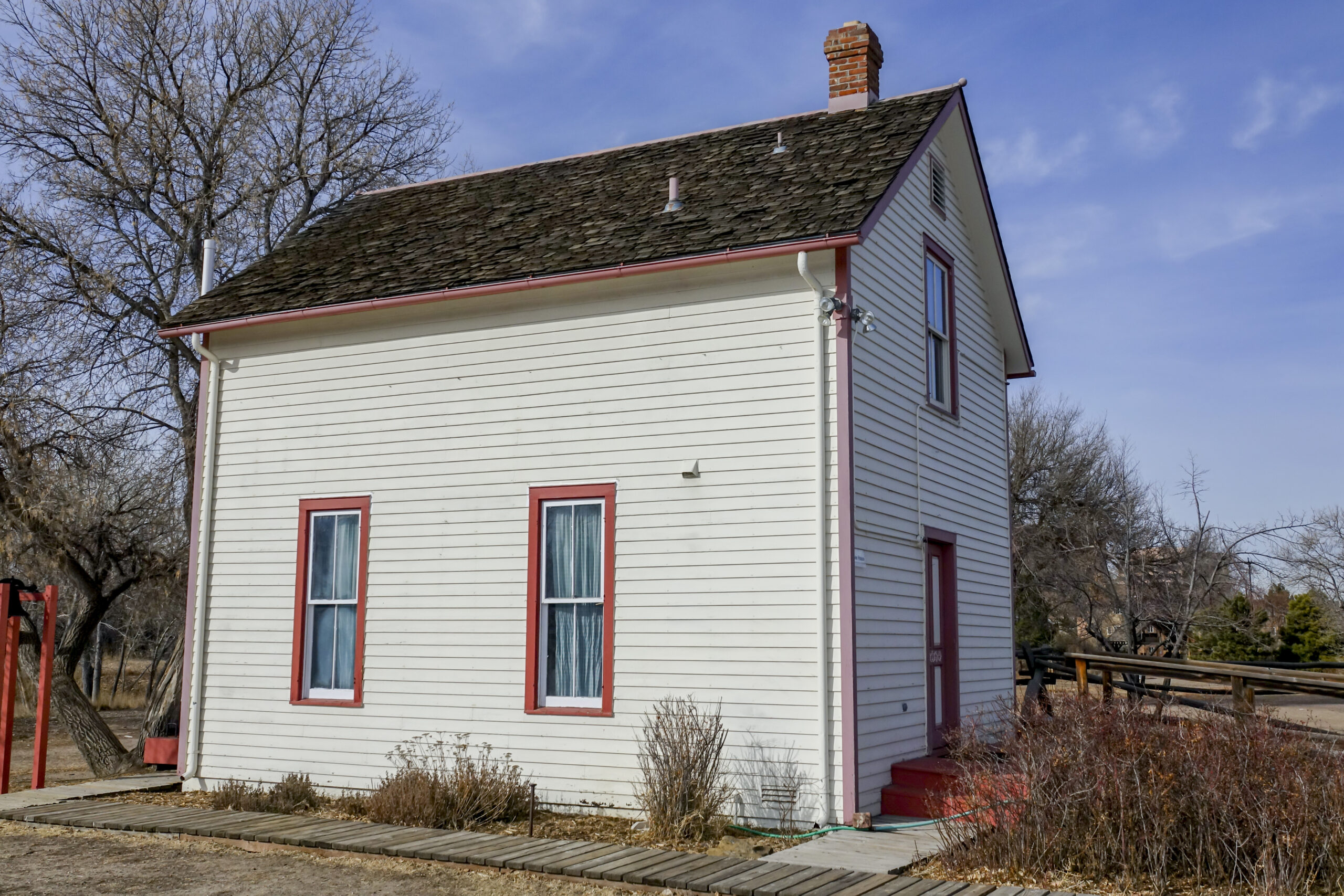
The original structure of the Bee House, a testament to the strength and persistence of female entrepreneurs, is destroyed in a fire.
Four Mile House receives Historical Monument Designation from The Daughters of the American Revolution Peace Pipe Chapter.
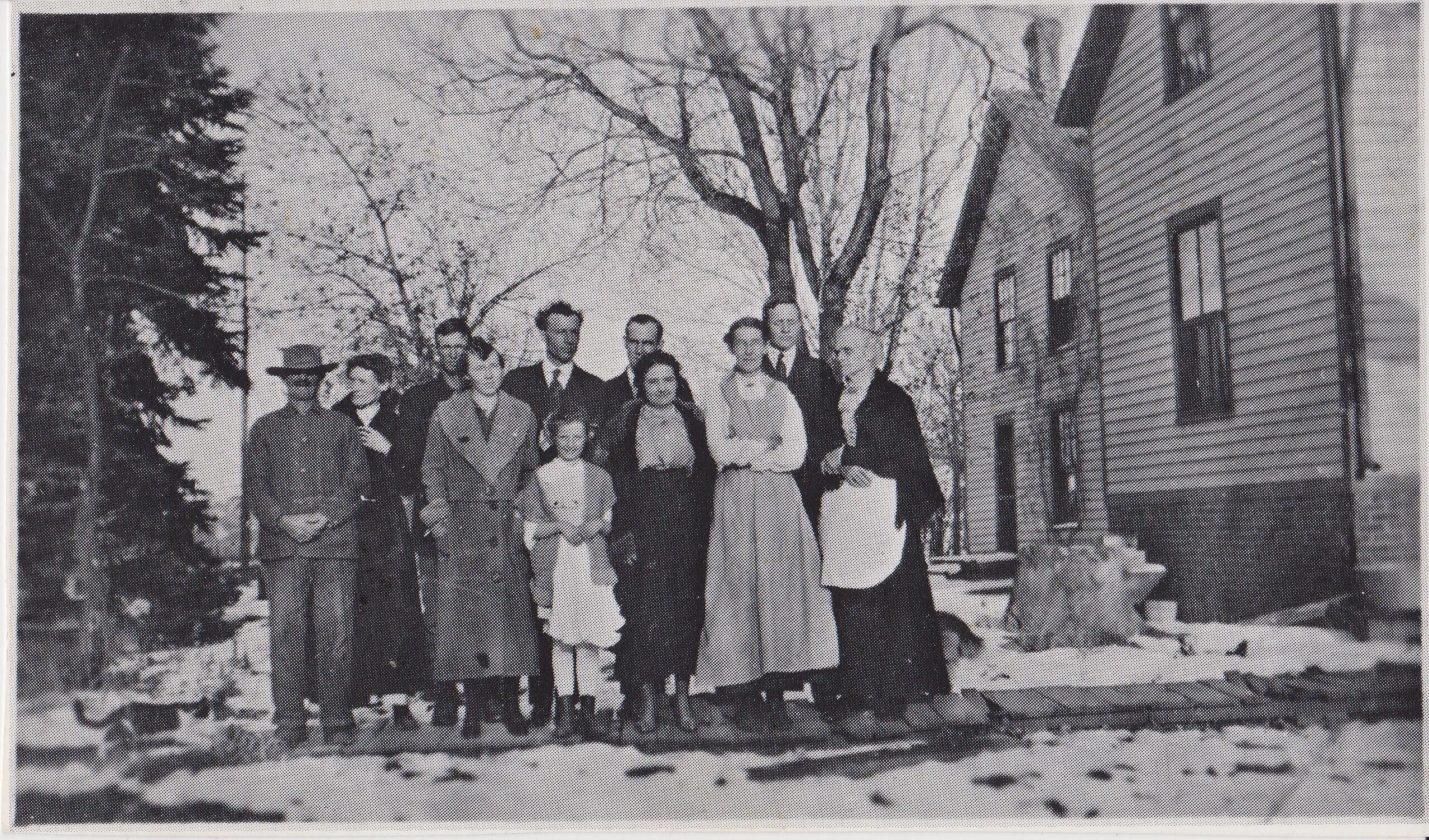
Two years after Grace Booth Working’s husband Daniel passed away, Grace sells the Four Mile House and some surrounding land to Glen and Pearl Boulton, who lived in the house until 1963. During these two decades, the property, which had been on the outskirts of Denver, “was surrounded by development as Denver spread southeast and Glendale became an enclave of businesses and bars.”
Four Mile House is listed on the National Register of Historic Places on December 3rd, among the first five properties chosen in the Denver area.
The City and County of Denver acquire Four Mile House and surrounding property. Preservation efforts begin.
Archaeological investigations begin and reveal the foundations of several lost buildings including the Bee House, which burned down nearly 40 years prior.
The nonprofit Four Mile Historic Park Inc. is formed to care for the property and develop the museum.
Four Mile Historic Park is dedicated to the citizens of Denver as a public park, and the museum opens.
Architect Edward D. White Jr. reconstructs the Bee House based on family photos and archaeological evidence collected from the site.
Denver’s Mayor Federico Peña signs a citation recognizing the Founding Members of Denver’s Four Mile Historic Park for “their vision and foresight that preserved this unique place in the history and development of Denver.”
The Colorado Historical Society awards 4MHP with the Josephine H Miles History Award for the advancement of Colorado history. The same year, 4MHP receives an award for merit for outstanding community contributions from the El Pomar Foundation.
Four Mile Historic Park receives the Fred A Rosenstock Award for outstanding achievements in and contributions to Rocky Mountain history from the Denver Posse of Westerners.
Four Mile Historic Park receives Westword’s Best Little Parties on the Prairie Award.
9News declares Four Mile Historic Park one of Colorado’s best summer camps.
Mayor John Hickenlooper declares Four Mile Historic Park one of 12 partners in the Five By Five Program, providing Denver Head Start and Early Head Start children and their families with year-round access and educational opportunities at no cost.
Four Mile Historic Park becomes a Denver Story Trek partner in collaboration with Historic Denver’s Molly Brown House Museum, Kirkland Museum of Fine & Decorative Art, Black American West Museum & Heritage Center, and Byers-Evans House Museum – bringing unity to Denver art and culture organizations through history.
The Park receives the Greater Glendale Chamber of Commerce Nonprofit of the Year Award for 2015.
Four Mile House celebrates 160 years. Four Mile Historic Park honors the first Executive Director and employee, Charlie & Karin Woolley at the annual Rendezvous Gala.
Four Mile Historic Park briefly closes to the public, but is able to re-open following COVID-19 safety protocols.

Rediscovering and sharing Colorado’s history is a multifaceted task which requires a passionate team of responsible stewards. Four Mile Historic Park is proud to have assembled a team of enthusiastic leaders dedicated to the task.
Meet the Staff & BoardWhen you become a member of 4MHP, you become a part of a community that protects this extraordinary window into the past and gain access to exclusive privileges.
Your support for Four Mile Historic Park powers youth and community education programs, interpretive research, and preservation of the Museum and collections.
